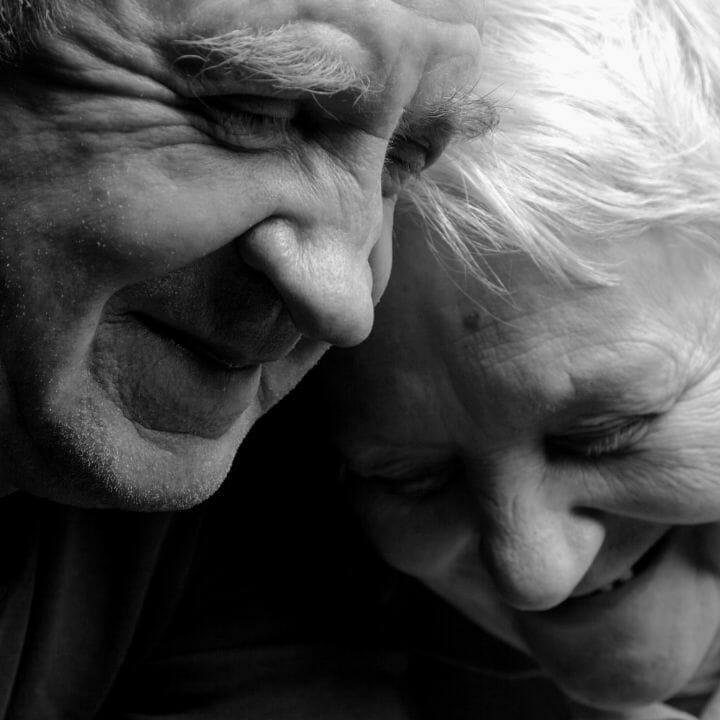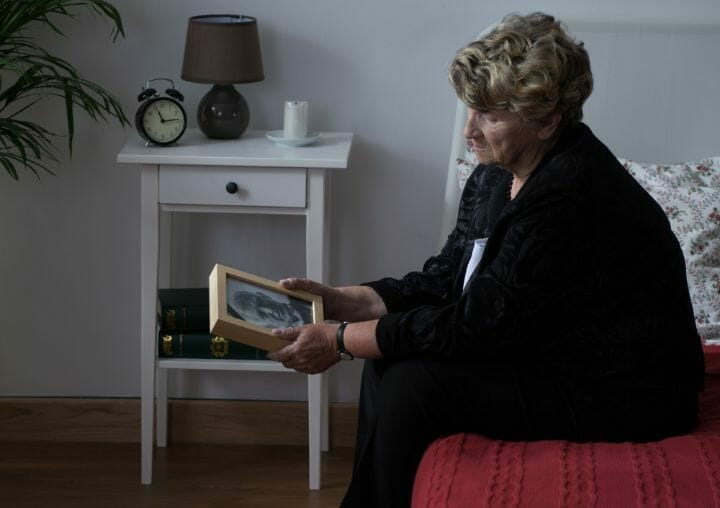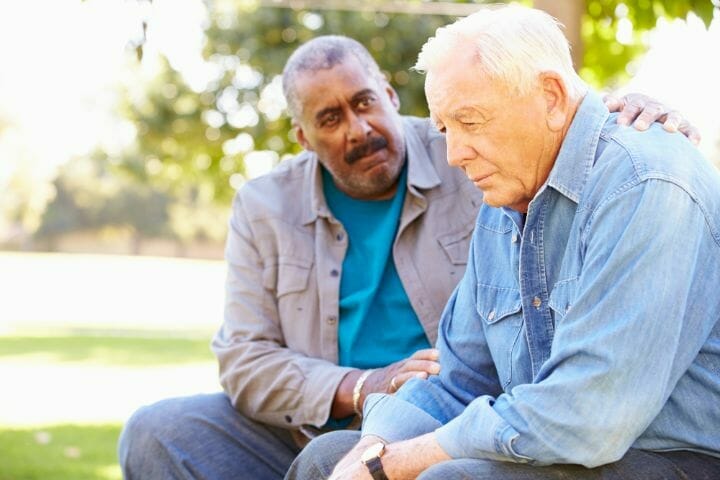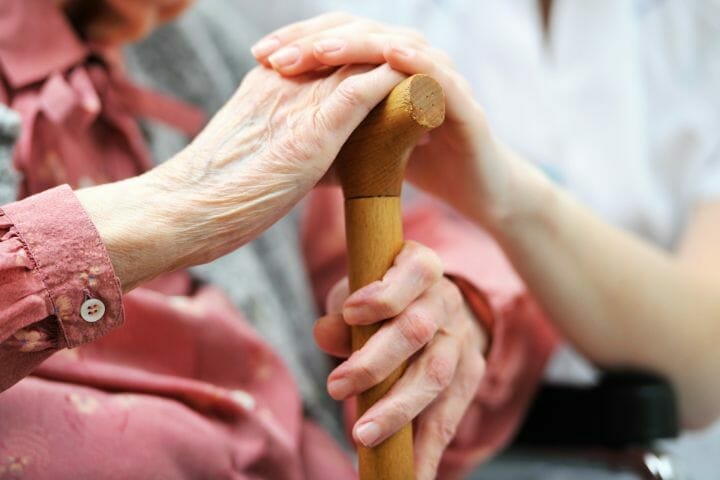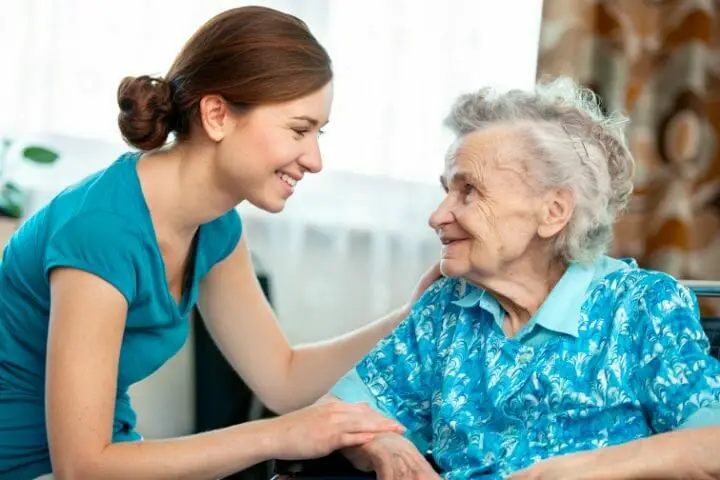Any death causes great pain, and if it is of a significant other, it can feel unsurmountable. It becomes even more painful if this tragedy happens in old age when seniors have very few things to look forward to.
Grief is a natural process of responding to death through psychological, social, and physical changes. This long roller-coaster ride can take some time to come to a halt. Intense willpower and social support can help an elderly get over the sadness and move in his life.
——————————————-
Loss is inevitable for the elderly because, as age, our loved ones, friends, and other acquaintances also age. Whether it is for seniors, or any young adult, with the death of a loved one comes grief. When an elderly lose a close loved one, she has invested her emotions, attention, time, energy, or dreams for decades. It leads to a long period of grief and mourning.
The psychological effects of death are different for older people. When young, deaths are generally sudden and unexpected, and they may deal with differently. However, with older people, deaths are considered inherent to the stage of their lives. Even though somebody’s death is not entirely unanticipated, the accumulation of grief can lead to “bereavement overload.”
There are few things an elderly and his family members can do in these situations. In this article, let’s go through a few of those things.
- Common reactions
- Different people feel differently?
- Physiological and Psychological effects
- Effects on the Immune system
- Challenges for healthcare professionals
- Importance of self-care
Contents
Common reactions
The most common reaction to hearing of the death of someone is a sense of shock. While youth can get over the shock in a few days, it can remain in seniors for a few weeks. It is also natural because they may have spent a much longer time with the deceased person. Even if they didn’t spend a long time, they might have made a deeper emotional investment in the significant other.
When you’re experiencing it, you might feel – sick, dizzy, nauseous, numb, or even empty. Sometimes, complete disbelief about what has happened can also be a way an elderly may respond to a spouse’s death. They may feel empty. In a few circumstances, they may also react strangely, such as sudden crying or laughing.
Different people feel differently?
The death of a significant other can be the most stressful experience for anybody, and for older people, it can be even more stressful. While most seniors will have one or more of the common reactions when a significant other dies, there can be demography related differences. It was mostly because of the inter-dependencies they had when they were together.
Most of the couples divide their household tasks. While one person may be responsible for paying bills, the other may cook meals. So if the deceased person was the one preparing meals, the surviving person might stop eating altogether.
Similarly, if the deceased person was responsible for managing the couple’s finances, the surviving person may start feeling dependent on the other family members. It may lead to a sense of depression.
Moreover, one may also observe different ways an older man would feel vis-à-vis an older woman. If part of an extended family, women survivors may find it easier to engage with others than men. Similarly, men may find it easier to go out and get involved in an occupation.
Sometimes, men may express their grief through physical activities and may not cry at all. On the other hand, women may want to share their feelings and talk to others or cry vigorously. The societal culture also plays a significant role in how the surviving person – men or women- may feel. In a few cultures, they may express their sadness through rituals and ceremonies.
Also, if the surviving elderly had lost a loved one earlier, the recent death may remind him of the earlier death of that loved one, leading him towards hopelessness.
Regardless of the circumstances, we may have to help the surviving elderly learn to do new tasks. It may take time, so patience is the key.
Physiological and psychological effects
After a few days of a significant other’s death, seniors may also start showing physiological and psychological body changes. While emotional changes such as sadness, loneliness, disbelief, and anger are widespread, few may also display the effects of despairs and guilt.
Other effects may also include physical changes, such as having headaches and muscle aches. They may become forgetful or confused with an inability to concentrate.
We can also see behavioral changes in elderlies. They find it difficult to sleep and may have dreams or nightmares. Besides a diminishing appetite, they may not want to go out or meet people. Sometimes, they, particularly men, may feel a need to show strength for family or friends.
Depending on the cultural upbringing, few seniors may become more spiritual. In contrast, others may also start challenging their beliefs and faith.
In general, after losing a spouse, the period of grief may last for up to 2 months, or sometimes even more. However, it is critical to understand that a period of sadness is not necessarily a depression provided; it is not significantly prolonged or causing significant physical or emotional impairment. One must seek professional help when in doubt.
Few seniors may also experience a condition of complicated grief. In these cases, the elderly may not be able to understand the death and experience prolonged sadness. One may know that a person is in complicated grief if he is overly negative emotions and unable to find a new purpose in his life.
You may also like How to Know When an Elderly Person Can’t Live Alone?
Effects on the Immune system
An extended period of grief can have a traumatizing impact on older people’s immune systems and explains why not many elderly people live long after a loss of their spouses.
In a research, it is found that a critical component in our immunity system which is responsible for protecting our body against infections is weak when we are going through a phase of grief when we loose someone very close to us.
The study published in Dialogue in Clinical Neurosciences journal involved analyzing a neutrophil which is a white blood cell type. These WBCs plays an important role in fighting against bacteria and other agents which cause infection. The neutrophil WBCs consume and kill rapidly developing bacteria. If not suppressed timely, these infectious agents may cause serious illnesses, including pneumonia.
Study- Physiological correlates of bereavement and the impact of bereavement interventions [https://www.ncbi.nlm.nih.gov/pmc/articles/PMC3384441/]
It is worth noting that while, in younger people undergoing grief, the neutrophils may not be affected in the same way as they are in older people. In seniors, the capability to destroy bacteria of neutrophils’ with destructive molecules is compromised. It might also be one of the main reasons of older people becoming more prone to infection after a sudden demise of their loved ones.
Challenges for healthcare professionals
If approached by a grieving elderly or a family member, the health care worker should ensure that they have the person’s full history. They should not make the mistake of giving patients medicines to sedate the pain of loss.
Medicines may prevent people from talking about their loss, which is an essential step towards normalcy. Without grieving, the elderly may lose the only outlet for their pain.
One of the other critical issues for the health care providers caring for the elderly is whether the senior is ready to move forward with their lives or become more depressed day by day.
A few of the best ways to help a grieving elderly who just lost a significant other are acknowledging the person’s loss, being empathetic towards him, and listening to what he has to say.
Healthcare professionals should not try to set the expectations on time of recovery. They should help the elderly work on his or her own pace.
You may also like Best Guard Dog for Elderly
Importance of Self-care
After years of togetherness, being alone is very difficult. Taking care of oneself after a significant other’s death is extremely critical. If not taken care of, the stress of loss may affect the elderly not only emotionally but also physically.
Although the pain’s intensity will diminish over time, many seniors, especially those who live alone or in long term care, may still miss his spouse even after months or years. Sometimes, few elders may feel guilty for having fun, laughing at a joke, or enjoying things without the deceased spouse.
Sometimes, people hesitate to mention the dead person’s name because they are worried this may aggravate the tension. However, all people involved must try this avenue. Sharing stories about the one who has just gone can help replace the feeling of grief with few heartwarming memories, even if temporarily.
It is the family and friends’ responsibility to provide critical emotional and physical support as needed. Moreover, while mourning the loss themselves, these near-ones may find that sharing memories is one way to help each other.
Besides taking benefit of social support, if available, there are several other things an elderly can do to keep himself engaged:
- Being active and regular exercise can help the elderly get enough sleep.
- While it is vital to eat right, a few older people may lose appetite altogether. For them, having lunch with friends can be an excellent option. If alone, one can switch on the video or radio to keep them distracted while eating.
- Avoid addiction such as habitual drinking of alcohol or smoking. It will have adverse effects on the senior’s health.
- If alone, seniors may have to use ways to distract themselves from sadness. Listening to a radio or watching TV can be a good distractor.
- Visiting public places like the library or joining an exercise class at a recreation center or a gymnasium can help engage with the external world.
- One may also engage with family and friends by doing things together.
- Adopting a pet or volunteering for social causes may also help the elderly gain confidence.
- Many seniors find comfort in religious activities and faith. Reading religious or spiritual texts Praying, or listening to music may also be comforting.
- One should not skip doctor’s visits. Seniors and family members should bring the doctor up to speed on any pre-existing medical conditions and other health issues.
- Counseling may also make it easier for the senior to work through the sorrow. Regular talk therapy with a counselor or therapist can help people learn to accept death and, in time, start a new life.
While a loss of death may seem unsurmountable, the surviving elderly will have to bring his own life back. Both surviving elderly and the family members will have to take steps to bring normalcy in their lives.


